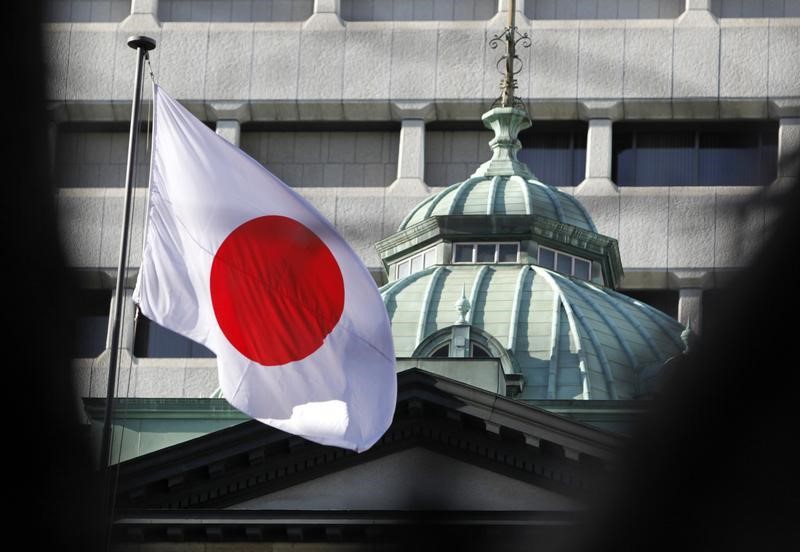Investing.com-- The Bank of Japan hiked interest rates for the first time in 17 years on Tuesday, marking an end to nearly a decade of ultra-loose policy on growing confidence that a "virtuous cycle" of its inflation targets and wage stability will be achieved.
The BOJ raised short-term interest rates by ten basis points to 0%, and said while it will continue to purchase Japanese government bonds at a "steady" pace, it will end the purchase of exchange-traded funds and real estate investment trusts.
The BOJ said it will hold its overnight call rate within a range of 0% to 0.1%, and apply an interest rate of 0.1% to current account balances held by financial institutions at the bank.
The BOJ also signaled it will gradually reduce its purchase of commercial paper and corporate bonds, with a view to discontinue purchases in a year- with the two moves marking an end to the bank's yield curve control policy.
The move comes just weeks after Japanese labor unions won bumper wage hikes from employers for the year, while data showed Japanese inflation remained sticky and the economy narrowly dodged a recession in the fourth quarter.
"...the virtuous cycle between wages and prices has become more solid, the Bank judged it came in sight that the price stability target would be achieved in a sustainable and stable manner," The BOJ said in a statement.
Analysts were largely split over whether such a move would come in March or April, although proponents of a March hike argued that recent developments in the Japanese economy gave the BOJ enough impetus to begin tightening policy.
Japan’s economy also narrowly dodged a recession in the fourth quarter of 2023, giving the BOJ more confidence to begin scaling back its ultra-dovish policy.
BOJ to remain accommodative as economic uncertainty persists
But despite its rate hike and end to yield curve control, the BOJ signaled that monetary conditions in Japan will remain largely accommodative for "the time being."
The BOJ said that some weakness was now seen in the Japanese economy, but that increased wages were likely to help spur increased consumption in the coming months.
Falling personal consumption had weighed heavily on the Japanese economy through the second half of 2023. But strong business spending helped the country dodge a technical recession.
Nikkei pares losses, USDJPY rises
Japanese stocks reacted positively to the BOJ, given that its actions on Tuesday marked an only marginal move away from its ultra-dovish policies. The Nikkei 225 index reversed early losses to trade 0.2% higher by 00:05 ET (04:05 GMT).
On the other hand, the Japanese yen weakened on the prospect of monetary conditions remaining largely loose. The USDJPY pair surged nearly 0.5% and was close to breaking above the 150 level.
